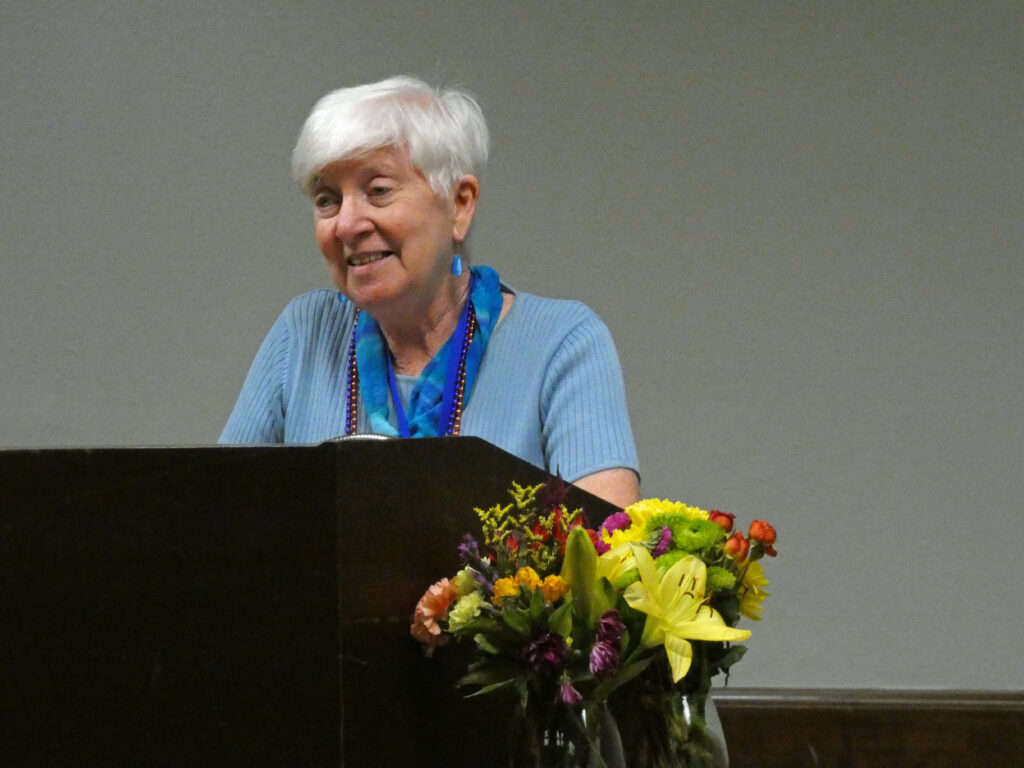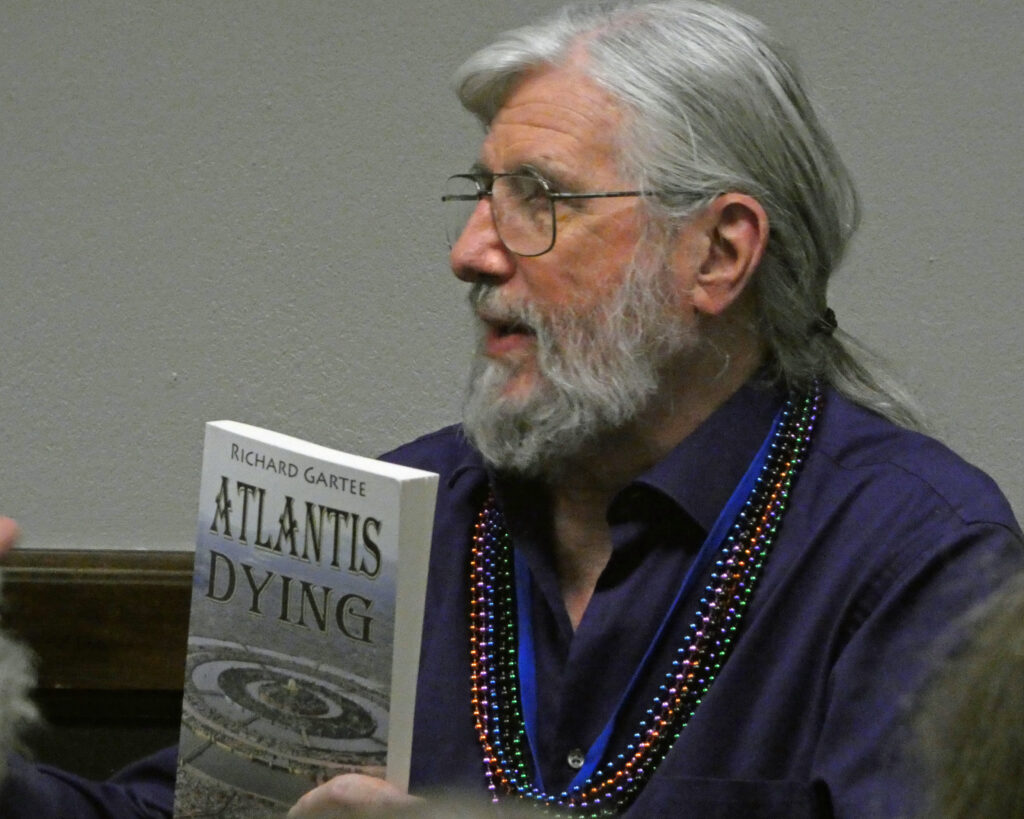By Mallory M. O’Connor
The theme of this year’s Sunshine State Book Festival focused on how writers are responding to the topic of climate change. Fittingly, the final hour of the festival was devoted to an exploration of the work of four Gainesville authors whose writings delve into a variety of climate issues.
Ellen Siegel served as moderator for the panel discussion at the festival, held last weekend in Gainesville. Siegel works as a climate speaker specialist for the CLEO Institute, a nonpartisan, nonprofit organization that is a leader in climate literacy, engagement and advocacy in Florida. Active in a number of additional climate-related programs including the Climate Reality Project, she was uniquely qualified to oversee the discussion.
In introducing the session, she noted that climate fiction, or cli-fi, is a growing genre for authors who want to connect with readers on how our changing climate affects us now – and might affect us in the future.

As the author of a paranormal/cli-fi series of books, I was among the four panelists discussing the topic. My novels include “Epiphany’s Gift,” which exposes the ramifications of fracking when an Ohio town experiences earthquakes and environmental disasters; “Key to Eternity” which addresses species extinction; “Xanadu’s Cavern,” which focuses on dwindling water resources; and “Firehorse,” which explores the threats of drought and wildfires.
I provided a brief history of climate fiction and how climate historically has been used by authors to heighten the drama of their stories and provide an emotionally charged backdrop for the actions of their characters. But now, as extreme weather swirls around the globe — melting glaciers, burning forests, flooding homes and annihilating species — the climate emergency has brought the unimaginable into our daily lives and literature.
Today’s writers are beginning to document these issues and propose possibilities for coping with present and future problems initiated and accelerated by human activities. Cli-fi stories can help build emotional resilience and help individuals connect emotionally with the climate crisis.
The next speaker on the panel, Bonnie T. Ogle, brings environmental awareness to younger readers with her humorous book “Freaky Frogs.” It features two middle school children learning from a neighboring scientist how frogs are early sentinels of environmental hazards.
Her bilingual “Miranda and the Golden Frogs,” also for younger readers, is the true story of the plight of the Panamanian golden frog. Ogle spoke about how young readers can gain a sense of empowerment from reading stories about what problems we face and how we might best address them as we work for positive change.

Pat Caren writes under the pen name Marie Q Rogers. Her 2023 novel, “Season of the Dove,” is set in 2123 and takes a dystopian look at the political and social changes brought about by rising ocean levels covering much of Florida and the East coast after Category 6 hurricanes have become commonplace.
The United States has broken into competing sub-nations, resulting in a quasi-feudal society. Through her cast of characters, Rogers imagines what it would be like to live under such circumstances. She gives her readers a lot to think about.
Finally, Richard Gartee spoke about two of his most recent novels: “Atlantis Dying,” an analogy about present-day climate change deniers set 5,500 years ago as Atlantean scientists warn of a coming dire change, and “Atlantis Obsession,” in which the hero learns about present-day misuse of natural springs and the water needs of people in the Sahara Desert. Gartee’s extensive research into Africa’s ecological and hydrological history provides a solid foundation for his fascinating re-imagining of the Atlantis story.
Chris Kocher, cofounder of Extreme Weather Survivors – a nationwide community of people directly harmed by disasters – says that he’s seen firsthand the power of personal storytelling in supporting healing and advancing policy change.
“We truly believe,” he said last year during a New York Climate Week event, “that stories are the things that build movements, that change lives and that promote political progress.”
Can stories change the world? Let’s give it a try!
Mallory M. O’Connor is a professor emerita of art history at Santa Fe College in Gainesville and the author of six published novels. Banner photo: Stacks of books at a bookstore (iStock image).
Sign up for The Invading Sea newsletter by visiting here. To support The Invading Sea, click here to make a donation. If you are interested in submitting an opinion piece to The Invading Sea, email Editor Nathan Crabbe at ncrabbe@fau.edu.



